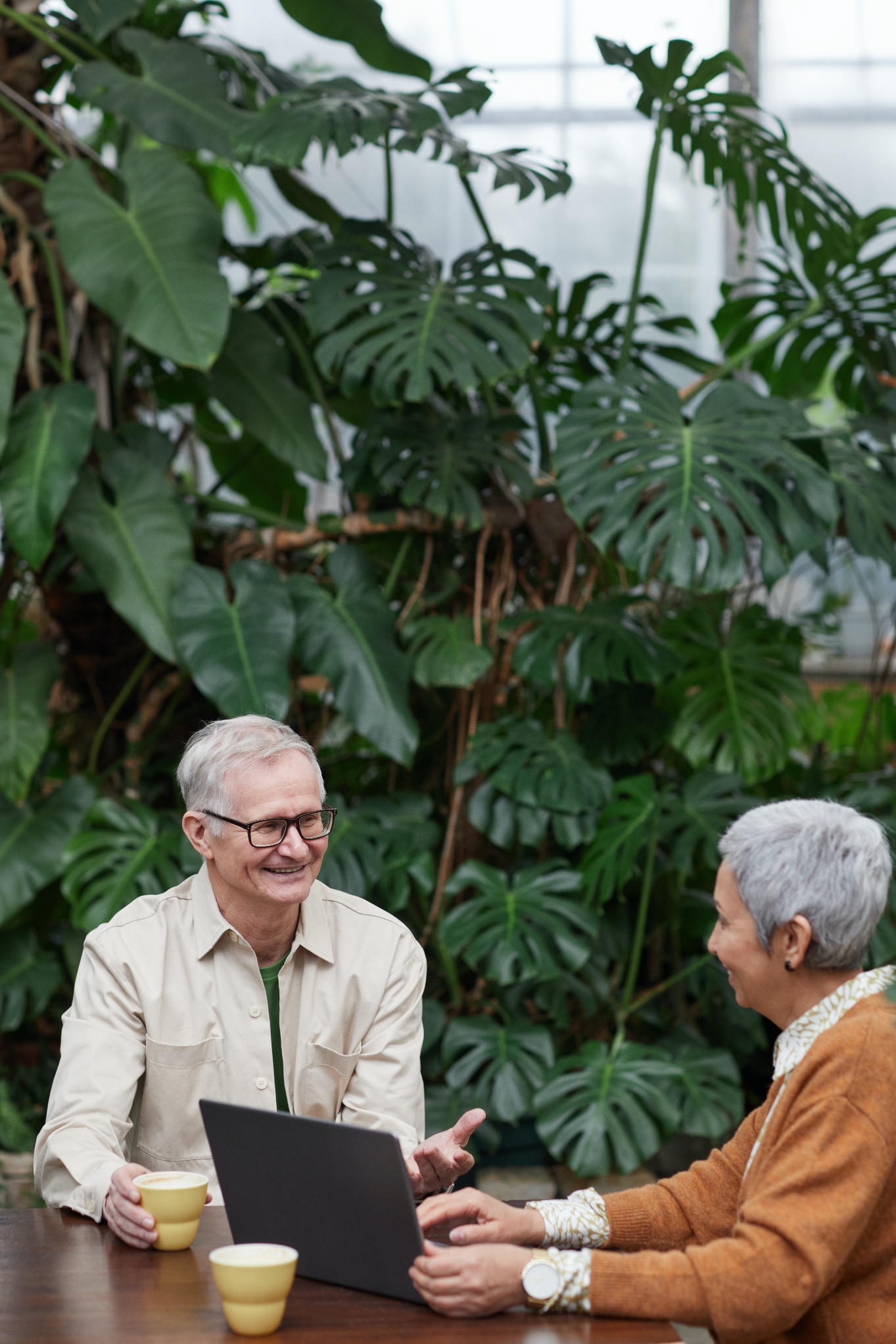January 7, 2022

According to the Administration on Aging (a division of the US Department of Health and Human Services), in 2020 roughly 14.7 million adults age 65 and older lived alone. Older adults are more likely to suffer from social isolation and loneliness because they’re also more likely to experience factors that contribute to social isolation and loneliness, like dealing with the loss of family and friends, managing a chronic illness, and living alone.
Being social is an important part of every adult’s life, especially as they get older. You’ve probably heard the benefits of staying physically active as you age. But did you know that maintaining an active social life also provides numerous health benefits? Below, we’ll outline why being socially active is so important for aging adults.
Promotes Greater Mental Health and Emotional Well-Being
Research shows that loneliness leads to a decrease in cognitive function and increases a person’s risk of developing dementia.1,2
Older adults who interact with their family, friends, and even strangers are more likely to experience fewer negative thoughts and to have a more positive mood.3 Older adults who participate in continuous social interaction are also more likely to experience fewer depressive symptoms.4
Socialization can also help protect older adults from cognitive decline. Studies show that older adults with high levels of social interaction are less likely to experience cognitive decline.5
Increases the Likelihood of Being Physically Active
Social activity, while not considered physical activity or exercise, tends to help people get up and move around and out of the house. A recent study links social activity to an increase in physical activity throughout the day, and less time sitting or lying around.
Reduces Stress
Researchers have seen that socializing increases levels of oxytocin, a hormone that decreases anxiety and calms stress responses.6 Oxytocin can lower blood pressure and cortisol levels (cortisol is known as the stress hormone). Socializing is an important part of reducing stress, and studies show that managing stress can help improve cardiovascular health and even improve how the immune system works.7,8
Increases Life Expectancy
Loneliness is proven to increase the risk of premature death, but numerous studies show that socialization and people with strong social connections may live longer.9 Additionally, one study shows that older adults who socialize with younger people may experience an increase in their life span, improved cognitive abilities, and improved cardiovascular health.10
What Are Some Ways That Older Adults Can Stay Social?
- Volunteer at a community center
- Join a club or group (like gardening, reading, or games)
- Join a senior fitness center
- Reach out to family
- Hire an in-home caretaker
At JSP Home Care Services, we understand that life can feel lonely as you get older. That’s why we provide home health aide services to aging adults in New York City. Our certified home health aides provide compassionate home care assistance. Learn more about the services we offer to aging adults, here. To schedule a consultation with JSP Home Care Services, contact us online or call 866.860.2528
Sources:
1. Boss, L., Kang, D., & Branson, S. Loneliness and cognitive function in the older adult: A systematic review. International Psychogeriatrics. 2015;27(4):541-553. https://www.cambridge.org/core/journals/international-psychogeriatrics/article/abs/loneliness-and-cognitive-function-in-the-older-adult-a-systematic-review/A6E74721892EBB511EEDBABC9081A826.
2. Lara E, Martín-María N, De la Torre-Luque A, et al. Does loneliness contribute to mild cognitive impairment and dementia? A systematic review and meta-analysis of longitudinal studies. Ageing Research Reviews. 2019; 52:7-16. https://www.sciencedirect.com/science/article/pii/S1568163718302472?via%3Dihub.
3. University of Texas at Austin. “Interacting with more people is shown to keep older adults more active.” ScienceDaily. ScienceDaily, 20 February 2019. www.sciencedaily.com/releases/2019/02/190220074610.htm.
4. Chiao C, Weng LJ, Botticello A. Social participation reduces depressive symptoms among older adults: An 18-year longitudinal analysis in Taiwan. BMC Public Health. 2011;11(292). https://bmcpublichealth.biomedcentral.com/articles/10.1186/1471-2458-11-292.
5. Rush University Medical Center. “Higher levels of social activity decrease the risk of cognitive decline.” ScienceDaily. ScienceDaily, 26 April 2011. www.sciencedaily.com/releases/2011/04/110425173906.htm.
6. Uvnas-Moberg K, Petersson M. Oxytocin, a mediator of anti-stress, well-being, social interaction, growth and healing. Z Psychosom Med Psychother. 2005;51(1):57-80. https://pubmed.ncbi.nlm.nih.gov/15834840/.
7. Reduce your stress to protect your heart. Harvard Health Publishing. Published August 09, 2011. https://www.health.harvard.edu/healthbeat/reduce-your-stress-to-protect-your-heart.
8. Cleveland Clinic. What Happens When Your Immune System Gets Stressed Out? Published March 01, 2017. https://health.clevelandclinic.org/what-happens-when-your-immune-system-gets-stressed-out/.
9. Harvard T.H. Chan School fo Public Health. An active social life may help you live longer. https://www.hsph.harvard.edu/news/hsph-in-the-news/active-social-life-longevity/.
10. Erica Westly. Socializing with Youth Improves the Elderly’s Health, Life Span. Scientific American. Published August 01, 2008. https://www.scientificamerican.com/article/talk-to-teens-live-longer/.